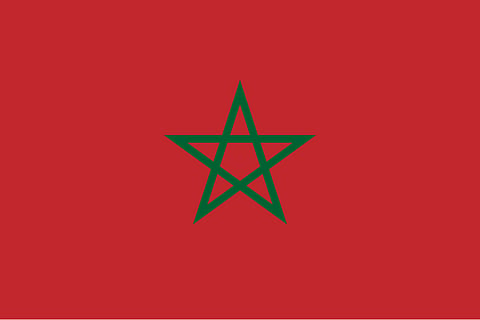"Morocco is not concerned, while EU Member States Voice Unwavering Commitment to Strategic Partnership with Morocco"
The Kingdom of Morocco considers itself in no way concerned by the European Union Court of Justice's Friday ruling on the agricultural and fisheries agreements, says the Ministry of Foreign Affairs, African Cooperation and Moroccan Expatriates, stressing that the Kingdom was not involved in any phase of the proceedings. “Morocco is not a party to this case, which concerns the European Union on the one hand, and the Algeria-backed 'polisario' on the other. Morocco did not take part in any of the procedural phases and, consequently, does not consider itself in any way concerned by the decision,” states the Ministry in a press release.
Nevertheless, “the content of this decision contains obvious legal errors and suspicious errors of fact,” the same source continues, adding that “this denotes, at best, a total ignorance of the case's realities, if not blatant political bias.” The Ministry further maintains that “the Court has even allowed itself to take the place of the competent UN bodies, contradicting their well-established positions and approaches. Moreover, the British High Court had, on a completely similar case, shown more discernment, impartiality and legal mastery.”
According to the press release, “Morocco demands that the Council, the European Commission and the EU Member States take the necessary measures to respect their international commitments, preserve the achievements of the partnership and provide the Kingdom with the legal certainty to which it is legitimately entitled, as a partner of the EU on several strategic issues.” In this context, concludes the same source, “Morocco reiterates its constant position not to subscribe to any agreement or legal instrument that does not respect its territorial integrity and national unity.”
Following this, the European Union (EU) and several member states have expressed their unwavering commitment to the Union's strategic partnership with Morocco and their desire to further strengthen it, following the European Court of Justice (ECJ) rulings on the fishing and agricultural agreements between the bloc and the Kingdom.
European Commission President Ursula von der Leyen and EU High Representative Josep Borrell reaffirmed, in a joint statement, the EU's commitment to preserving and strengthening close relations with Morocco in all areas, in line with the «pacta sunt servanda» principle.
This joint statement, a rare political act highlighting the importance of Morocco, emphasizes the significance of the EU’s partnership with Morocco. It reiterates the "high value" the EU places on its "long-standing, wide-opening, and deep" strategic partnership with Morocco.
For its part, Hungary, which holds the rotating presidency of the EU Council, reiterated its constant position in favor of strengthening the strategic partnership between the EU and the Kingdom of Morocco, stating that this is "in our common interest."
The two officials also noted that the two parties have developed over the years "a profound friendship and a solid and multi-faceted cooperation, which we intend to take to the next level in the coming weeks and months."
Several EU countries followed suit, emphasizing the strategic nature of the Morocco-EU partnership. In Madrid, Spanish Foreign Minister José Manuel Albares defended the "strategic partnership" with Morocco and the desire to maintain it, while expressing his government’s respect for the ECJ's decision.
Albares stressed the importance of the strategic partnership between the EU and Morocco for both parties and the "benefits" it has brought to the fishing and agricultural sectors. He further affirmed that the Spanish government would continue "to work with the EU and Morocco to preserve and further develop this privileged relationship."
Similarly, France reaffirmed its unwavering commitment to its exceptional partnership with Morocco and its determination to deepen it. In a statement, the French Ministry for Europe and Foreign Affairs emphasized that the relationship between the EU and Morocco is of strategic importance.
It affirmed that Paris would continue working with its European partners to strengthen their exchanges, particularly economic ones, and to preserve the achievements of the partnership, in accordance with international law.
As President Emmanuel Macron wrote to His Majesty King Mohammed VI on the occasion of the Throne Day, France remains determined to support Morocco’s efforts towards the economic and social development of the Sahara for the benefit of local populations, the Quai d’Orsay added.
For its part, Hungary, which holds the rotating presidency of the EU Council, reiterated its constant position in favor of strengthening the strategic partnership between the EU and the Kingdom of Morocco, stating that this is "in our common interest."
"We will continue to work to serve these interests by strengthening ties and expanding cooperation with Morocco into new areas," said the Hungarian Ministry of ForeignAffairs and Trade in a statement, adding that Budapest is closely studying the CJEU ruling regarding the EU-Morocco fishing and agricultural agreements.
Belgium also reiterated its commitment to the strategic partnership between the European Union and Morocco and its dedication to continue working on deepening this relationship. It expressed its support for the joint declaration by the President of the European Commission and the EU High Representative on this matter.
In the same vein, Italy highlighted the "fundamental" strategic partnership between the EU and Morocco. "The strategic partnership is fundamental between the EU and Morocco, including in agriculture and fishing," said Deputy Prime Minister, Minister of ForeignAffairs and International Cooperation, Antonio Tajani, on his X account.
"The European Court should take this into account," stressed the Italian Foreign Minister. "The Italian government, as I will reiterate during my visit to Rabat, seeks to further strengthen cooperation with Morocco, particularly in the fight against illegal immigration," headded.
The Netherlands also reiterated their "strong commitment to the strategic partnership between the EU and Morocco," emphasizing that the Netherlands supports the joint declaration by the President of the European Commission and the EU High Representative on the CJEU’s rulings.
Similarly, Finland reaffirmed its "strong commitment" to the strategic partnership between the EU and Morocco.

